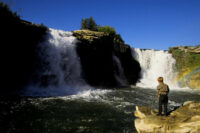Committee weighs value of potential light pollution bylaw
By Lethbridge Herald on January 14, 2022.
Al Beeber
Lethbridge Herald
abeeber@lethbridgeherald.com
Lethbridge may be getting one step closer to a light nuisance bylaw.
The Community Safety Standing Policy Committee of Lethbridge City Council has tasked administration with providing a report on the implementation of such a bylaw by April 14.
Several Lethbridge residents spoke Thursday to the committee about the impact of light on residences and the environment.
Rena Woss, an advocate for the nuisance bylaw who was the first to speak at the meeting, said she was pleased with the committee’s response.
“I’m very pleased with the response. I think they really heard the community concerns and they heard that it would be a win-win for the environment and for social issues. It would be the first of its kind for Lethbridge so we’re very excited and pleased at the response,” said Woss.
“What the bylaw addresses is light pollution which is a major polluter in the natural world….whether you’re a person, bee, bug, bird, butterfly, we’re all affected by it.
“What we’re advocating for is to implement a light bylaw like other cities across Canada and around the world have. Not just cities, there are countries that have country-wide laws to address light pollution because it is seen as a major driver of pollinator extinction. When you look at herbicides, pesticides, loss of habitat, so from an environmental point of view, it’s really important.
“But from a social point of view, it’s important, as well. And one of the things that we cited today was if a neighbour turns on a light and it streams into your bedroom, into your yard, there isn’t a thing you can do about it right now.
“With a bylaw, you would be able to address it just like a noise bylaw. A dog is barking and you don’t care, you’re not going to call a bylaw officer but if it does disrupt your peace and quiet or your baby’s sleeping, there is a bylaw to address it. So this would be complaint-driven just like other bylaws are,” Woss added.
In her address, Woss cited the communities of Bon Accord, Alta. and Saskatoon, Sask. which also have light nuisance bylaws.
“Light pollution has been on my radar for over 25 years. I became really interested in it because when a technology impacts society the way light has, it calls out for more investigation so that’s what I’ve done.
“You can see that it’s not just me but many people are aware of not just the benefits of light but the problems that it has created throughout society and throughout our environment,” she told the committee.
“The more people become aware of this, they advocate for bylaws that curb light pollution so that we engage in good lighting practise. And that’s what we all want.
“Many cities across Canada already have light pollution bylaws in place and light pollution falls under the umbrella of nuisance. So just like noise, dust, vibration, light is considered to be a nuisance when it’s not properly used. And that’s what we’re finding is happening, not just in Lethbridge but everywhere,” Woss said.
A bylaw would benefit not only those who want to enjoy darkness in their personal spaces at night but also environmentalists who set up bee boxes, bat boxes, bird feeders and baths.
“A single light will sabotage all of your efforts,” she said.
“So this particular bylaw would be a win-win for the environment and for society…it would send a signal to our community to partake in environmental stewardship, to talk about the things that drive away our pollinators,” she added.
Several others addressed the subject including Gilles Leclair, who was an organizer of the apple festival that ran here for years, Roger Metz who discussed problems with his neighbour’s LED lights and Harold Pereverseff who talked about the impact of a resident’s backyard pool lighting on a tenant.
Klaus Jericho told the committee that light is not a nuisance issue, but an energy issue and referred to Lethbridge as a “light ocean.”
He said the city is flooded with light “and it’s time to get away from it.” The eventual closure of coal-fired generating plants will end the days of cheap energy and Jericho said the city needs to prepare for higher prices by dealing with how energy is misused.
Leclair said “one third of bee and butterfly species are in decline beset by various evils including manmade ones like pesticides, changing climates and light pollution.
“Science doesn’t have a record of convincing people of much these days.
He said the city could save money by not having as many lights for as many hours.
He also suggested dark zones could be a possible tourist attraction here.
“Lethbridge could always use another tourist attraction and having at least zones of darkness would be a draw for an increasingly weary light-stimulated populace.”
Follow @albeebHerald on Twitter.
28-27




